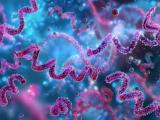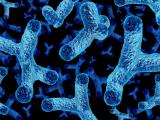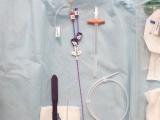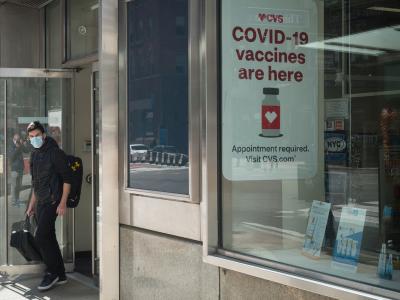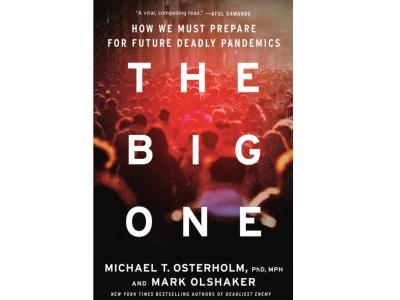Oct 20, 2011
Vaccine efforts to address cholera in Haiti
Boston-based non-governmental organization (NGO) Partners in Health (PIH) plans to launch a cholera vaccine campaign in Haiti in January, according to a Reuters story yesterday. Working with a Haitian medical NGO, PIH plans to administer an oral vaccine to 100,000 people in Port-au-Prince and the country's central Artibonite region, which has been hard hit. The vaccine, Shanchol, is made by Sanofi Aventis. PIH co-founder Paul Farmer said that Haiti's cholera epidemic is the world's most serious in proportion to the size of the nation. The outbreak, which began a year ago, has affected close to half a million of Haiti's 9.5 million people and killed about 6,500 of them, the story said.
In related news, Haiti's health ministry is preparing to test a cholera vaccine on more than 100 people from a Port-au-Prince shantytown and from the Artibonite region. Shanchol will be administered in two doses 6 months apart in an effort that has been approved by the World Health Organization, according to an Agence France-Press (AFP) article. The humanitarian group Medecins Sans Frontieres (Doctors Without Borders), which has treated more than 160,000 cholera patients in Haiti, warned that the disease could remain in the country for years. It called on authorities to step up treatment and prevention.
Oct 19 AFP article
EU extends ban on Egyptian sprout seeds
The European Commission (EC) on Oct 17 decided to extend its ban until the end of March 2012 on certain sprout seeds imported from Egypt, according to a press release. The EC imposed the ban in July after health officials linked Egyptian fenugreek sprout seeds to an Escherichia coli O104:H4 outbreak in Europe that sickened nearly 4,000 people and killed 43. The ban was initially set to expire on Oct 31, but an audit by the EC's Food and Veterinary Office (FVO) in August said Egypt's measures to prevent contamination in the seeds fell short. In September the FVO removed fresh or chilled legumes from the temporary ban. The EC said a scientific assessment by the European Food Safety Agency on the foodborne illness risk in seeds, sprouts, and other related produce items is due by the end of October.
Oct 18 EC press release
West Virginia outbreak signals further spread of resistant Klebsiella species
West Virginia recently had its first outbreak of carbapenem-resistant Klebsiella pneumoniae (CRKP), a pathogen that is often resistant to most antimicrobials, the Centers for Disease Control and Prevention (CDC) reported today. The outbreak confirms the further spread of CRKP in the United States, the agency said. A cluster of CRKP cases was identified at a hospital, and investigators found that the illnesses were associated with admission from or previously staying at a local long-term care facility (LTCF), according to an article in Morbidity and Mortality Weekly Report (MMWR). West Virginia state health officials identified 19 cases between April 2009 and February 2011; 14 of the patients had stayed at the same LTCF. Investigators found that surveillance and infection control practices at the hospital were sufficient, but there were deficiencies at the LTCF, which had gone without an infection preventionist for 9 months. The CDC said delaying the further spread of CRKP and other Enterobacteriaceae that carry the KPC enzyme, which confers resistance to all beta-lactam antimicrobials, is a public health priority. Aggressive infection control efforts have been successful in reducing outbreaks of these pathogens in hospitals and LTCFs, the agency said.
Oct 21 MMWR article
Aug 20, 2010, CIDRAP News story discussing KPC-carrying bacteria
Human antibody protects monkeys from Hendra virus in study
All African green monkeys infected with Hendra virus completely recovered after receiving treatment with a human antibody, according to a study by researchers from the National Institutes of Health (NIH) and other institutions published yesterday in Science Translational Medicine. Hendra and the closely related Nipah virus, rare viruses that are part of the NIH biodefense research program, target the lungs and brain and have human case-fatality rates of 60% and more than 75%, respectively, according to a press release from the NIH's National Institute of Allergy and Infectious Diseases (NIAID), which supported the study. The researchers challenged 14 monkeys intratracheally with a lethal dose of Hendra virus and tested to make sure all were infected. They then gave 12 of the animals a 100-mg dose of the antibody, called m102.4, at either 10, 24, or 72 hours after infection and a second dose about 48 hours after the first one. All 12 monkeys that received m102.4 survived, whereas the 2 untreated control animals died 8 days after infection. Monkeys in the 72-hour treatment group showed neurologic signs of the disease, but all animals started to recover by day 16 after infection. The disease in African green monkeys mirrors that in humans, according to the press release. NIAID Director Anthony S. Fauci, MD, said in the release, "This is an important research advance that illustrates how scientific discoveries emerge through a steady stepwise process, and how our investment in research on countermeasures for biodefense and emerging infectious diseases can help global preparedness efforts."
Oct 19 Sci Transl Med abstract
Oct 19 NIAID press release
CDC background on Hendra and Nipah viruses
